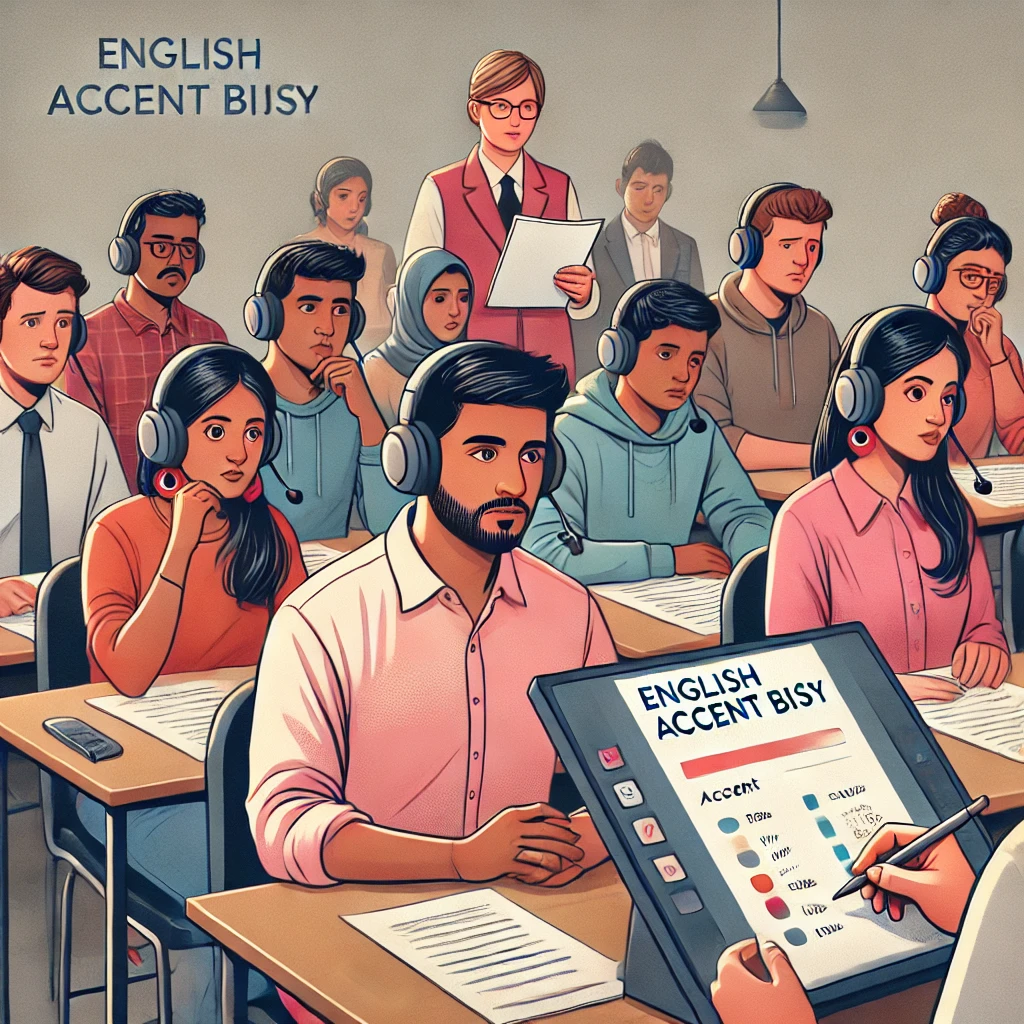A new survey has uncovered widespread concerns among Indian candidates taking English language proficiency exams, with 62% fearing their accent could unfairly impact their scores. The Pearson survey, which analysed the challenges faced by test takers, highlights potential biases in standardised language assessments, particularly in speaking tests.
The study also found that 74% of Indian test takers worry about their appearance affecting their performance. Many believe examiners may form subconscious judgments based on physical attributes, adding another layer of anxiety to an already stressful process. These concerns reflect broader issues of fairness and inclusivity in global language testing.
The Role of Accent in English Exams
India has one of the largest pools of candidates appearing for English proficiency tests like IELTS, TOEFL, and PTE, which are essential for studying or working abroad. However, test takers from non-Western backgrounds often report struggles with pronunciation-based scoring. Many fear that variations in English accents—such as Indian English—could result in lower marks, even when their grammar, vocabulary, and fluency meet the required standards.
Language experts argue that assessment systems should prioritise clarity over accent neutrality. However, studies suggest that human examiners may have unconscious biases favouring native-like accents, affecting scoring consistency. While some exams have attempted to introduce standardised guidelines to mitigate bias, test takers remain apprehensive.
Bias Beyond Accents: Appearance and Confidence
Beyond accent concerns, the survey also revealed that 74% of Indian test takers fear their appearance may play a role in their evaluation. This highlights anxieties about subjective biases in face-to-face speaking assessments, where body language and facial expressions might influence scores.
Additionally, many respondents believe that self-confidence and outward presentation may impact their performance, leading to uneven grading standards. This fear is more pronounced among test takers who lack exposure to native English-speaking environments, making them feel at a disadvantage compared to candidates from Western nations.
AI and Automated Testing: A Solution or Another Challenge?
To combat human bias, some English proficiency exams, such as the Pearson Test of English (PTE), have introduced AI-driven speech recognition for scoring. Proponents argue that automated systems offer a fairer alternative, ensuring consistency without favouring certain accents.
However, scepticism remains. Many test takers question whether AI can accurately interpret diverse English pronunciations, especially from countries with strong regional linguistic influences like India. Some candidates worry that AI algorithms may be trained primarily on Western accents, leading to unintentional discrimination.
The Call for Fairer Evaluations
As English remains the dominant global language for education and business, ensuring fair and unbiased assessments is critical. Experts suggest that test providers should increase transparency in scoring methods, improve examiner training to reduce bias, and refine AI models to be more inclusive of different accents.
With millions of Indians relying on English tests for global opportunities, addressing these concerns could be a step towards making language proficiency exams more equitable. As discussions on language bias gain traction, institutions will likely face growing pressure to adopt fairer, more inclusive assessment standards.



